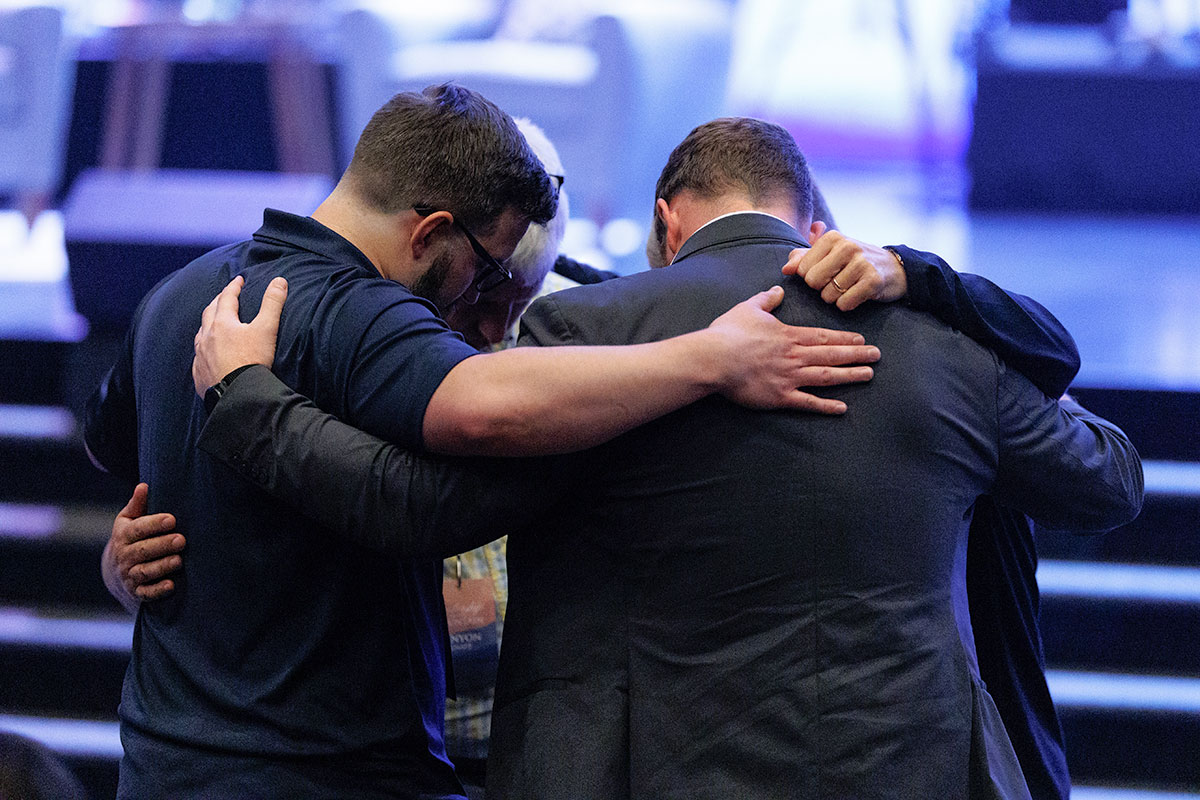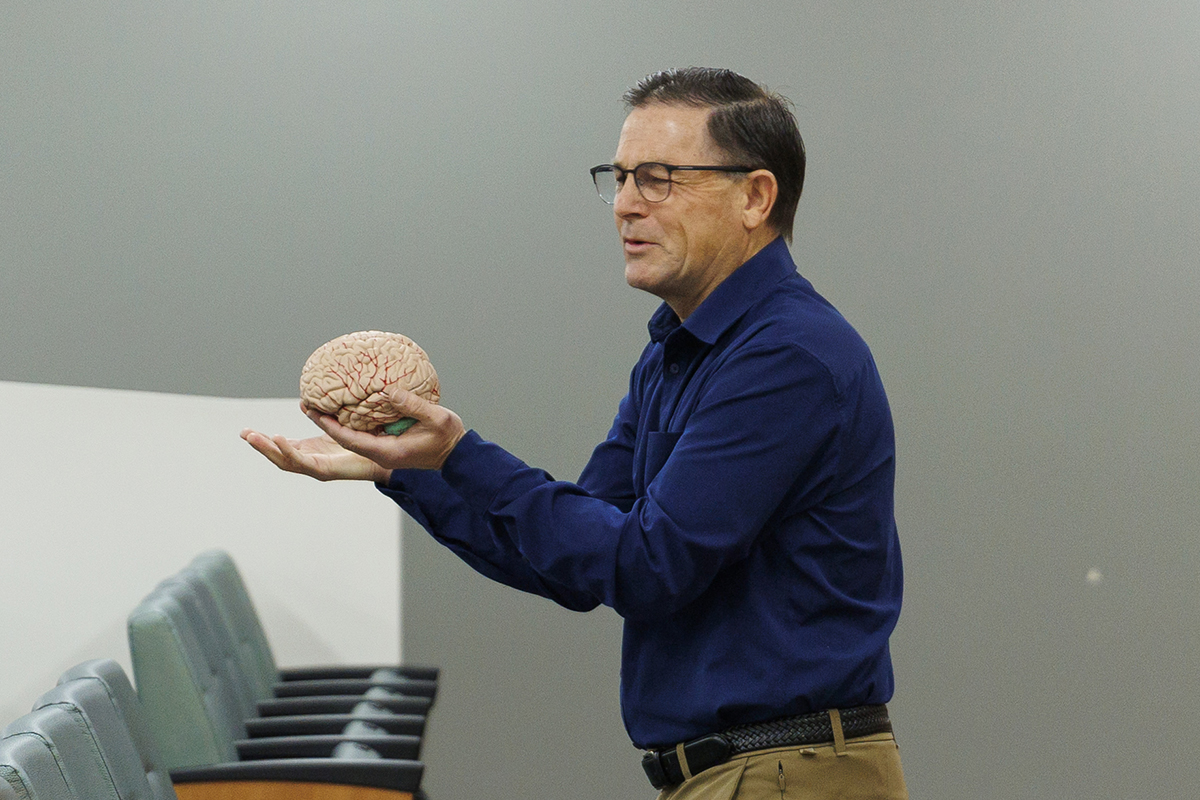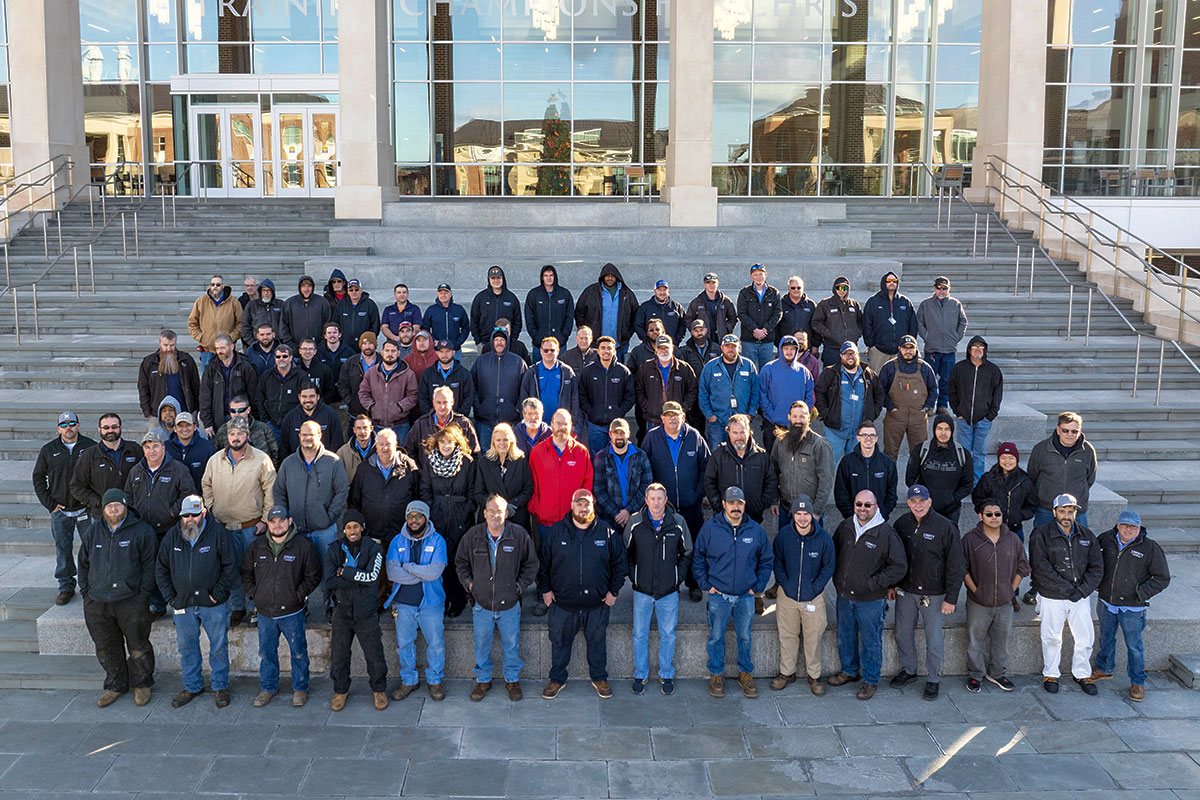Leadership on the Mountain summit inspires, equips Liberty’s leaders to serve well
August 7, 2025 : By Office of Communications & Public Engagement - Office of Communications & Public Engagement
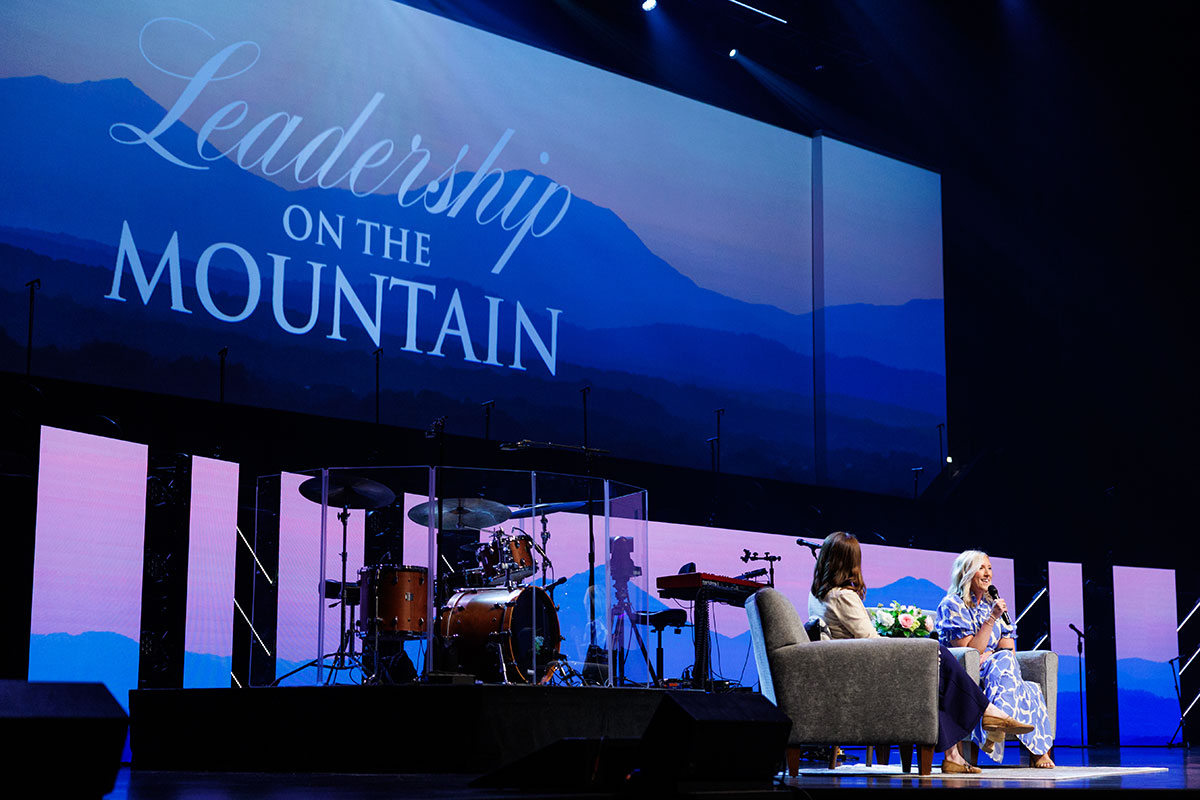
This summer, Liberty University held its inaugural Leadership on the Mountain summit, an opportunity for faculty and staff in leadership roles across campus to foster spiritual and professional growth through worship, engagement, and connection with the shared mission of Training Champions for Christ.
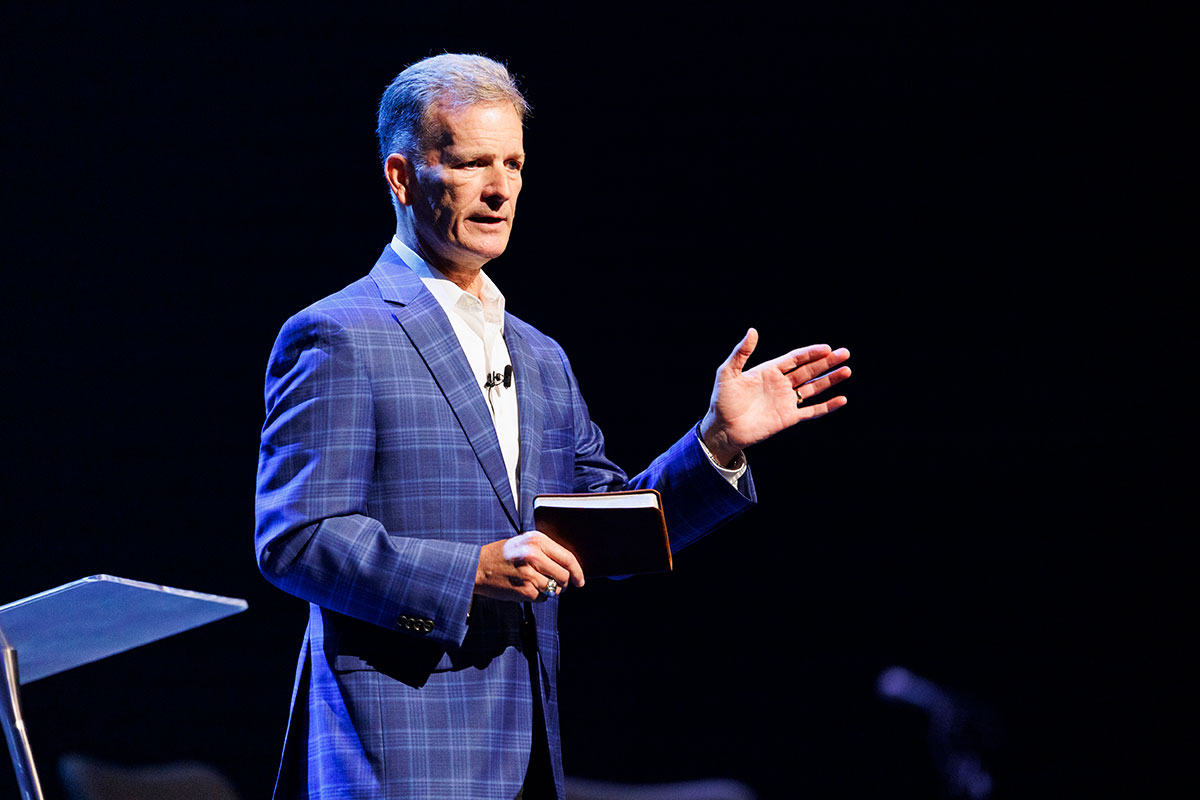
Over 500 people attended the two-day event, hosted by Liberty’s Human Resources Department June 26-27 at Thomas Road Baptist Church. The event was designed as a family-style gathering, bringing leaders across the university together to grow and learn side by side as they engaged with Liberty’s leadership culture on a personal and strategic level. The sub-theme, “For the People. By the People,” was reflected in the sessions, as employees and leaders operated all aspects of the events and served as speakers.
A primary focus was on training leaders in Liberty’s biblical definition of leadership. The main speakers, including President Dondi E. Costin and Chancellor Jonathan Falwell, addressed broader leadership themes through the lens of Liberty’s LEADERS framework (Lordship, Environment, Accountability, Development, Execution, Results, Shepherding), which is grounded in the Parable of the Talents (Matthew 25). Each principle was explored through TED-style talks, panel conversations, and practical examples from leaders across a wide range of roles. Several vice presidents took part in one-on-one interview sessions, representing different areas of university operations from academics, marketing, communications, spiritual development, student affairs, campus facilities, and more. They answered questions specific to their roles and departments and offered insight into the future of Liberty.
Each day, the summit included a worship time and prayer for Liberty’s leadership and for God’s direction within the university.
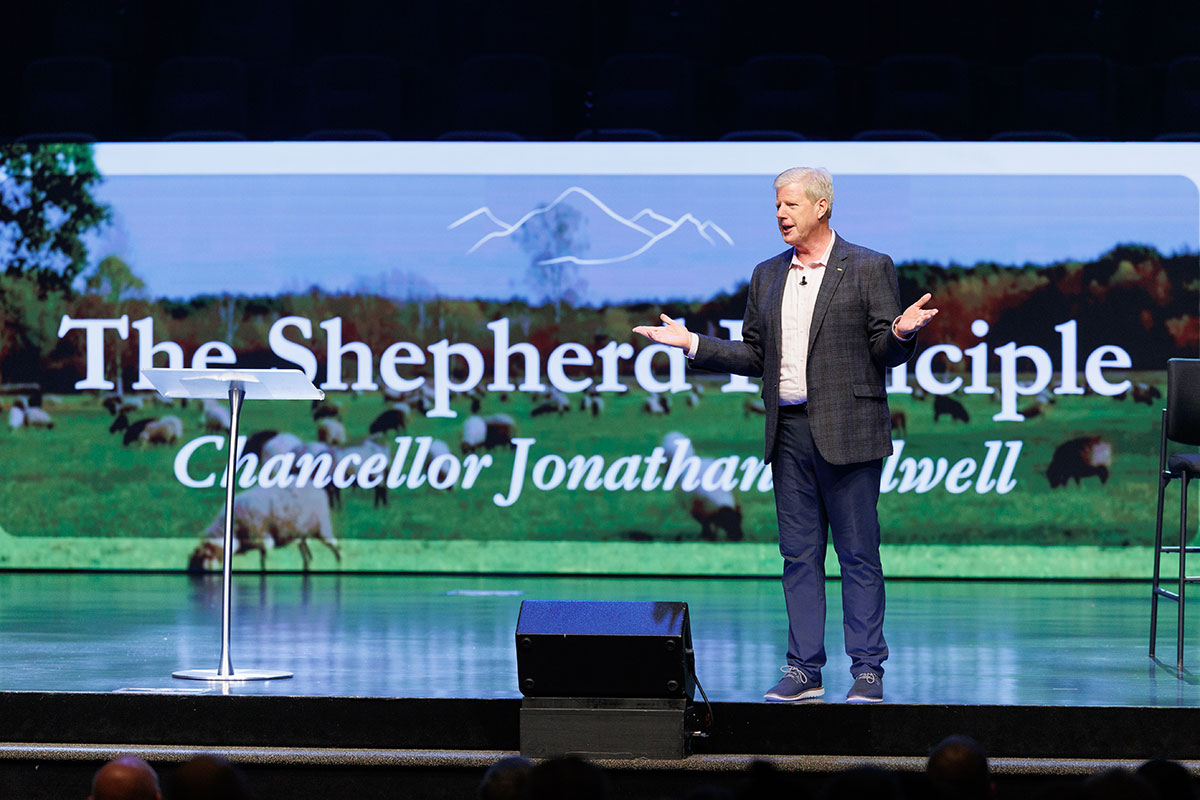
On the first day, Costin introduced the LEADERS framework and used Matthew 25 to emphasize the importance of stewarding what God has provided.
“There’s no way that Chancellor Jonathan Falwell and I could do all the things that you do in all your places, supervising all of your people, accomplishing all that you accomplish,” Costin told employees during the opening session. “Leadership on the Mountain is primarily about you and your leadership. It’s about you and the teams that you have been called to lead. It’s about the fact that you have been called to submit yourself to the authority of God Himself and to rule over and to lead effectively in your sphere of influence in the same way that God calls every other single leader to lead.”
Costin encouraged employees to honor Christ through their job and their personal lives, stressing that their behavior will positively impact those on their teams.
“Leadership on the Mountain originated because as we did our culture surveys early on, and as I talked to leaders all across the campus, there was this clamoring for there to be a heightened sense of leadership and leadership development all across the campus,” he said. “Leadership on the Mountain is about you becoming the kind of leader God wants you to be.”
In addition to Costin, many of Liberty’s leaders shared personal insights and powerful principles throughout the summit. Executive Vice President of Human Resources Steve Foster emphasized the transformative power of love in the workplace, noting that the greatest thing leaders can do for employees — which will also have the greatest impact on the environment — is to love them. Professor of Divinity and Senior Executive Director of LU Shepherd Dr. David Wheeler also spoke on the role of vulnerability in leadership, reminding attendees that “viable leadership is measured by eternal influence; it comes out of the climate that we build.”
University Registrar Jason Byrd, redefined accountability as a “divine privilege,” saying, “It’s a chance to partner with God to build His people and reflect His grace,” and Director of Athletics Ian McCaw stressed the discipline of consistent execution: “There is little correlation between those who talk a good game and those who get it done.”
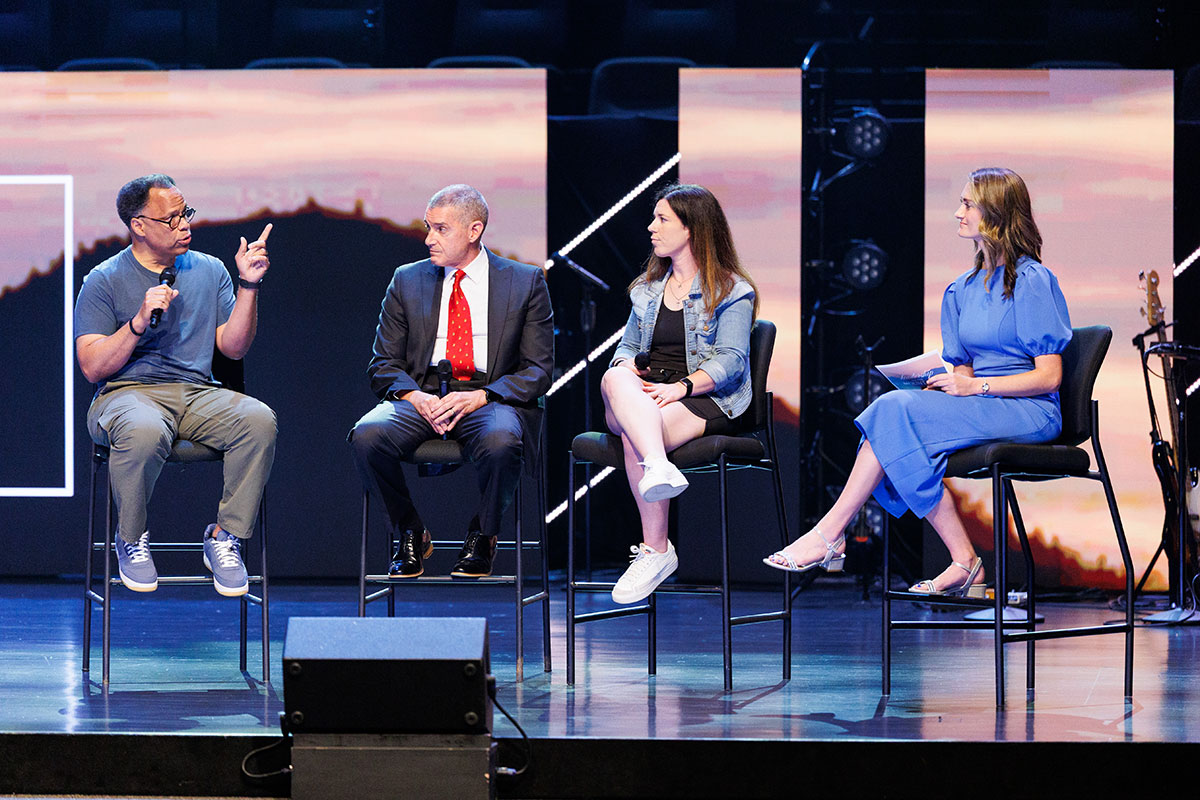
Many of the featured speakers challenged leaders to live with humility and purpose. Softball Head Coach Dot Richardson said, “It’s not about you getting the glory. It’s not about you getting the recognition. It’s about leading with a servant heart — with no ego — and empowering others to use their God-given talents.”
Falwell spoke on the second day, focusing on what it means to be a leader who takes on the role of shepherd. Drawing from passages like 1 Peter 5, Psalm 23, and John 10, he reminded Liberty’s leaders of their sacred responsibility to be ministers, not just administrators. He said leaders at Liberty are “under shepherds” who are tasked with guiding others under the authority of Christ, who is the Chief Shepherd.
“Here at Liberty, all of you are not only in leadership, but you are in ministry,” he said. “You don’t have to have ‘Reverend’ before your name to be in ministry. … Our responsibility before God is to minister to the people that God has put in our care.”
Falwell also stressed the importance of leading with the correct motives. He called on leaders to create a culture that “restores the soul” of the university’s 12,000 staffers. Effective leadership, he said, means creating an environment where entire teams can thrive, which requires leaders to adopt a team-focused approach.
“The definition of a shepherd is one who is looking not for the glory of self but the glory of God,” he said. “God has not put any of us here to celebrate self. God has put all of us here to bring all glory and all honor to the only One worthy of our praise. And that is Jesus Christ. It’s not up to one person to lead. It’s not up to one person to fulfill the mission of Training Champions for Christ. It’s not up to one person to make an impact and to make a difference on this campus that will take us into the future. It’s up to all of us.”
The summit reinforced the principles already being presented in new leadership development programs that Liberty launched last year. Costin called the summer event more than a summit — it was a “call to action.”
“It was a time to unify, grow, and prepare for the work God has placed before us,” he said. “The summit was designed to bring our biblical values to life in practical ways. This year, attendees heard from colleagues and peers — leaders who walk the same halls and face the same challenges — sharing real-world insights and solutions. Together, we will lead well for His glory and others’ good.”

